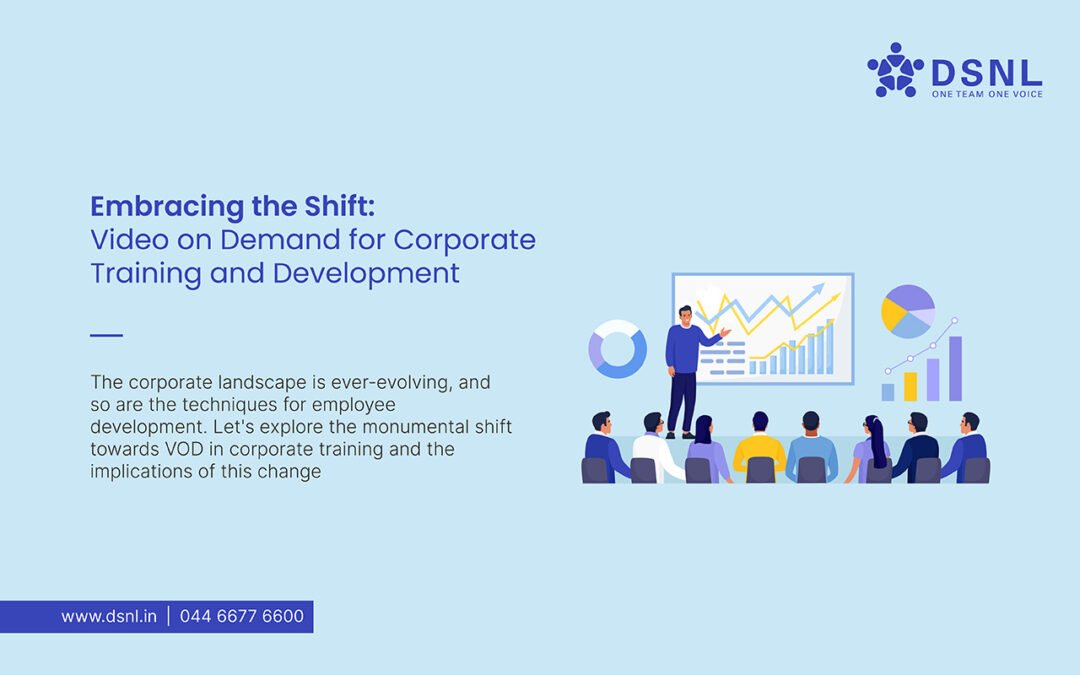The corporate landscape is ever-evolving, and so are the techniques for employee development. In recent times, Video on Demand (VOD) has become the torchbearer for corporate training, edging out traditional methods with its flexibility and efficiency. Let’s explore the monumental shift towards VOD in corporate training and the implications of this change.
The Rise of VOD in Corporate Training
Accessibility & Convenience: VOD caters to the contemporary workforce, which values flexibility. Employees can access training content whenever and wherever they want, be it during a lunch break, a commute, or a quiet evening.
Diverse Learning Modules: With VOD, there’s a wealth of content at one’s fingertips. Animated sequences, expert interviews, interactive quizzes, and simulations ensure that different learning styles are catered to effectively.
Cost-Efficiency: Traditional training often comes with hefty bills – venue hire, trainer fees, logistics, and material costs. VOD slashes these expenses, providing premium training content without the associated costs.

Impacting Employee Development & Organizational Growth
Consistent Quality: With VOD, every employee receives the same high standard of training. There’s no dilution of content or message inconsistency, ensuring uniformity in skill development.
Analytics & Progress Tracking: Modern VOD platforms come equipped with analytics. Organizations can track employee progress, assess comprehension levels, and identify areas for further training.
Interactive Engagement: VOD isn’t just about watching videos. Interactive elements, feedback loops, and discussion forums make the learning process engaging and collaborative.
Conclusion
The shift towards Video on Demand for corporate training is not just a trend; it’s a strategic evolution. By harnessing the power of VOD, businesses are ensuring that their workforce remains skilled, engaged, and ready for future challenges. Embracing VOD is more than just adopting a new training method; it’s about recognizing the future of corporate development and being a proactive part of it.
